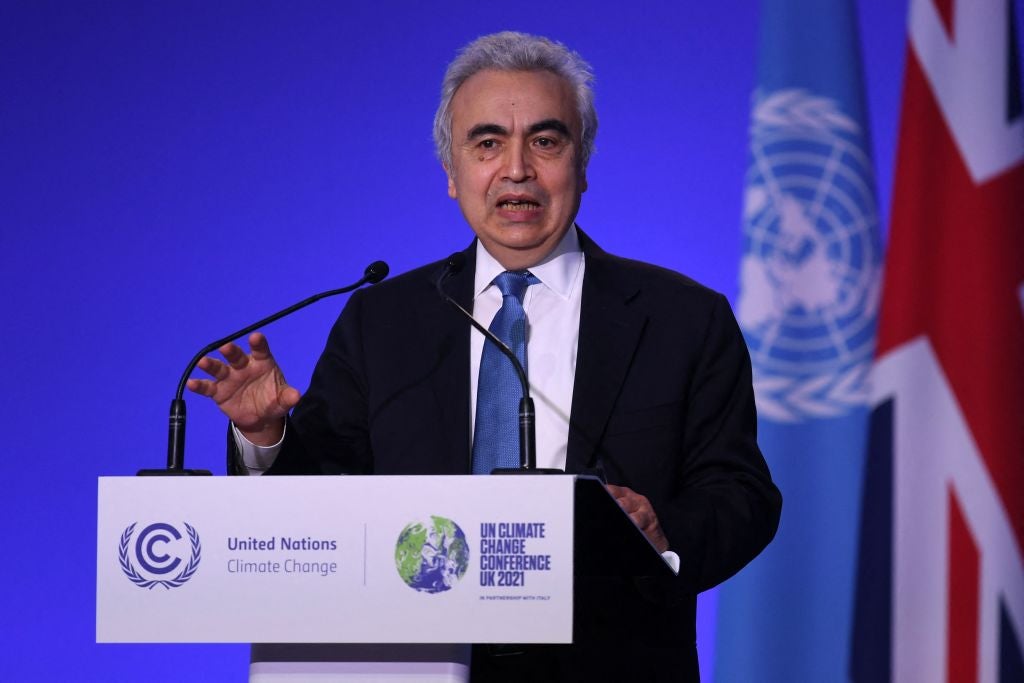The International Energy Agency (IEA) will start making more of its extensive global energy data freely available, its governing board suggested on 24 March, after energy and climate ministers from its member countries met in Paris for their 2022 annual meeting.
The IEA, an intergovernmental organisation within the framework of the OECD, established after the oil crisis in the 1970s, provides high-quality and comprehensive data on energy. While some information is available for free, more granular data is behind a paywall.

Prices to access the more detailed data sets can be steep: a subscription to access energy price data (covering 135 countries) costs €1,450 ($1,595) for a single user for 12 months, and a global corporate licence to access all IEA data would cost €100,000 a year.
IEA 3.0
As part of a blueprint for an ‘IEA 3.0’, with a focus on energy security and climate action for decades to come, executive director Fatih Birol made several requests to ministers on the first day of their meeting on 23 March. He made the case for the IEA to evolve its approach to energy security, to apply all its expertise and tools to the fight to reduce greenhouse gas emissions, and to bring on board more nations as associates.
“We also would like to start making IEA data freely available in the interest of increasing data transparency and supporting good decision-making,” Birol said.
It seems the governing board heeded Birol’s wishes. A call to do a “review of options that will enable more IEA data to be made freely available while offsetting any budgetary implications” was added to the ministerial to-do communique, published on Thursday.

US Tariffs are shifting - will you react or anticipate?
Don’t let policy changes catch you off guard. Stay proactive with real-time data and expert analysis.
By GlobalDataIn 2018, the IEA made around €5.6m from selling its data and analysis, according to estimates from Our World in Data, one of the main campaigners for more free data. That equates to more than a fifth of the organisation’s budget. One option to cover the lost revenue would be to ask member states to contribute more financial support, suggested director Birol in earlier comments on the issue.
High-quality data
In December 2021, a group of academics from 18 countries published an open letter to the IEA in which they called on it to remove the paywall. They argued that high-quality data is needed for researchers and policymakers to create an effective and efficient energy transition and that high-quality data already exists within the datasets of the IEA.
“Transition pathways rely on a thorough analysis and accurate modelling of current systems, including energy systems,” they wrote. “The quality of the analytics and modelling is, however, critically determined by the data used to describe and characterize the systems of interest.
“Ultimately, a lack of data availability will lead to net-zero transition pathways that are both more costly and less effective than they should have been.”
Free access to reliable and comprehensive data is also important for a just energy transition and equal access, not only because researchers from low-income countries might have fewer funds available but also because the IEA covers areas and countries that are often not included in other free access datasets.
The Statistical Review of World Energy by oil company BP is often turned to as an alternative, but it lacks some key metrics – it includes data on primary but not final energy consumption – does not cover many African countries and comes, of course, from a player with vested interests.
[Keep up with Energy Monitor: Subscribe to our weekly newsletter]
With Russia invading Ukraine, it has become more urgent than ever to access the IEA’s information, according to Our World in Data. Academics, journalists and even the public are trying to assess security of supply and energy dependency. However, to access the datasets from the IEA that cover these topics – such as on gas trading, oil and coal – a subscription is needed.
“Researchers have to find alternatives,” writes Our World in Data. “These can fill some gaps, but not all of them. Policymakers are then making important decisions based on incomplete information.
“The costs of this alone far, far outstrip the five to six million euros that would be required to make the IEA data public.”



